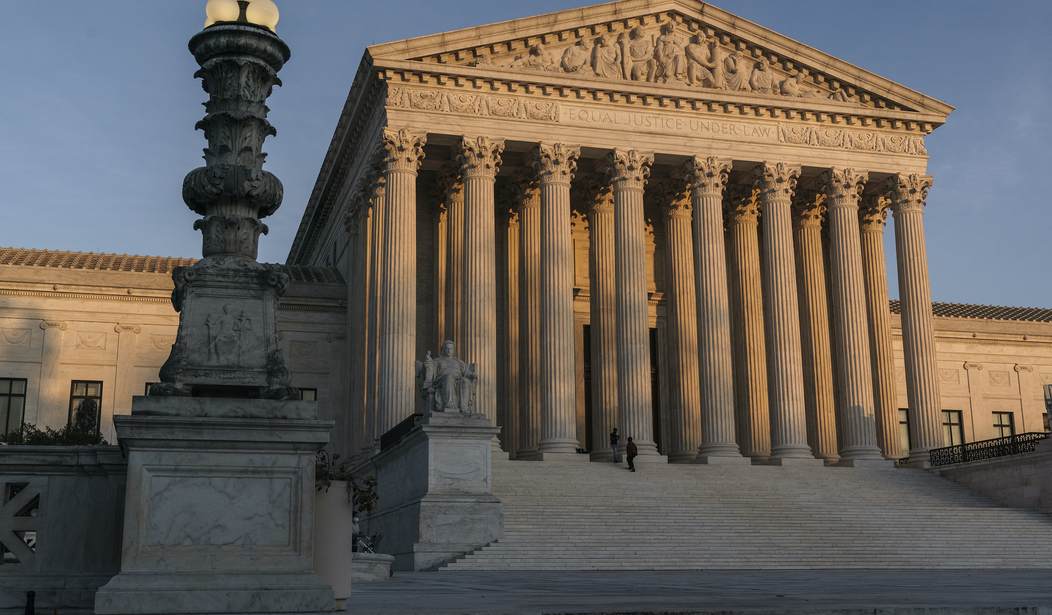On Monday, the Supreme Court decided two cases involving questions of criminal law. Neither case had garnered much media attention, and the outcome of the cases reflected the “bipartisan” nature of the views as expressed by the nine Justices. Both cases were important because they resolved splits among the Circuit Courts of Appeal on how the respective issues should be determined by trial courts during criminal cases.
Greer v. United States was decided by the Court on an 8-1 vote, with Justice Sotomayor concurring in part, dissenting in part, and dissenting in the outcome.
Terry v. United States was decided by the Court 9-0.
If the Biden Justice Department had been voting on the outcome in Terry, it would have been 9-1 — the Biden Justice Department advanced a position in the case that all nine Justices rejected. In getting to that point, the Biden Justice Department reversed from the position it had taken while it was called the Trump Justice Department — the position that was endorsed on Monday by all nine Justices.
It did so for transparently political reasons — the position it adopted was being advocated for by black political activists.
Terry involved a not terribly complicated issue of resentencing on a federal drug conviction involving crack cocaine. Sentencing for federal drug offenses is largely driven by the quantity of drugs involved in the crime. When crack cocaine (“cocaine base”) was added to the mandatory minimum provisions of federal drug statutes it was treated more harshly than powder cocaine by a factor of 100:1. In other words, sentences were the same for a person possessing 5 grams of crack cocaine as for possessing 500 grams of powder cocaine. Each respective amount triggered a mandatory minimum prison sentence. There were three “tiers” of offenses involving crack cocaine and mandatory minimum sentences — 0-5 grams, 5-50 grams, and 50 grams and above.
Two laws were passed by Congress to address this disparity — the Fair Sentencing Act in 2010 and the First Step Act in 2018. The Fair Sentencing Act adjusted the quantities to address the disparity by the second tier to 28-280 grams, and the third tier was changed to 280 grams and above. But the statute did not make the new amounts retroactive to thousands of cases already final with longer sentences under the old quantities. In the First Step Act, signed by President Trump, the quantity changes were made retroactive.
But there was one problem — the First Step Act expressly stated that the new quantities would be retroactive only to persons sentenced based on the application of a mandatory minimum term. That meant the retroactivity only applied to Tier 2 (5-50 grams) and Tier 3 (above 50 grams). The retroactive application would not apply to sentences for any defendant in a case involving less than 5 grams of crack cocaine. Terry’s case involved 4 grams of crack cocaine. He faced a maximum potential sentence of 20 years, but no mandatory minimum sentence. By its text, the First Step Act did not apply to him. Because of his criminal history, Terry had been sentenced to more than 15 years in prison under the “Career Offender” guideline.
Terry sought resentencing after the First Step Act made the new quantities retroactive, but his motion was denied because his sentence was based on his recidivism, not the quantity of crack cocaine he possessed. The Eleventh Circuit upheld the district court’s determination on appeal because he was not subjected to a mandatory minimum sentence.
On December 4, 2020, the Trump Justice Department filed a brief in opposition to the Court taking the case for review. But in January, the case was accepted for review by the Court, with the Petitioner’s Opening brief scheduled to be filed on February 12, and the Government’s Opposing Brief to be filed on March 14. Oral arguments were set to be heard on April 20, 2021.
Supreme Court briefs take some time to assemble — to research, write, and print in the required format and style.
On March 14 — the day the Justice Department’s “merits brief” was due — the Solicitor General’s Office sent a letter to the Court stating that due to the change in administrations, the Justice Department had determined upon further review that the decision of the Eleventh Circuit was incorrect, and it would not be filing a brief supporting the outcome of the case in that court.
The Supreme Court vacated the scheduled oral argument and appointed an amicus curiae counsel to file a brief and defend the outcome of the case in the appellate court.
The Biden Justice Department eventually filed a brief with the Court on March 31 — a 43-page legal abomination that sided with Terry and the various liberal interest groups who had filed amicus briefs in the case.
There is simply no question that a brief supporting the outcome of the case in the Eleventh Circuit had been prepared and was ready to file on March 14. The issues had already been briefed by the Solicitor General’s Office when it filed its opposition to the Court even taking the case to review.
The fact that the Biden Justice Department waited until the day the brief was due shows this was a politically driven decision. Had it been an earnest disagreement over a point of law, it would not have waited until the last day to inform the Court, requiring a host of adjustments by the Court to keep the case on schedule to be determined during this term.
Now the outcome is 9-0, with even the liberal justices not going along with the argument supported by the Biden Administration.
So much for Merrick Garland’s pledge to depoliticize the Justice Department.














Join the conversation as a VIP Member